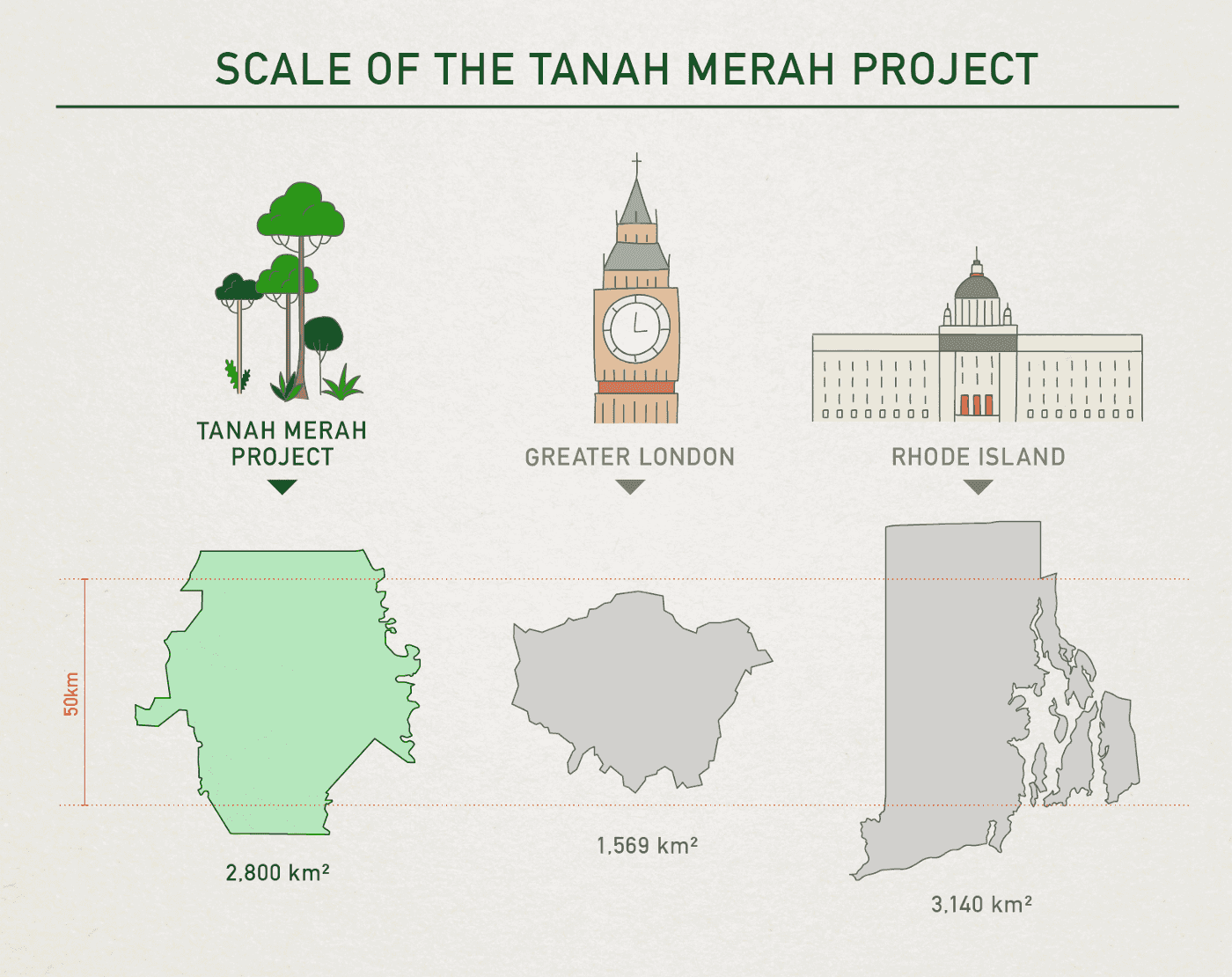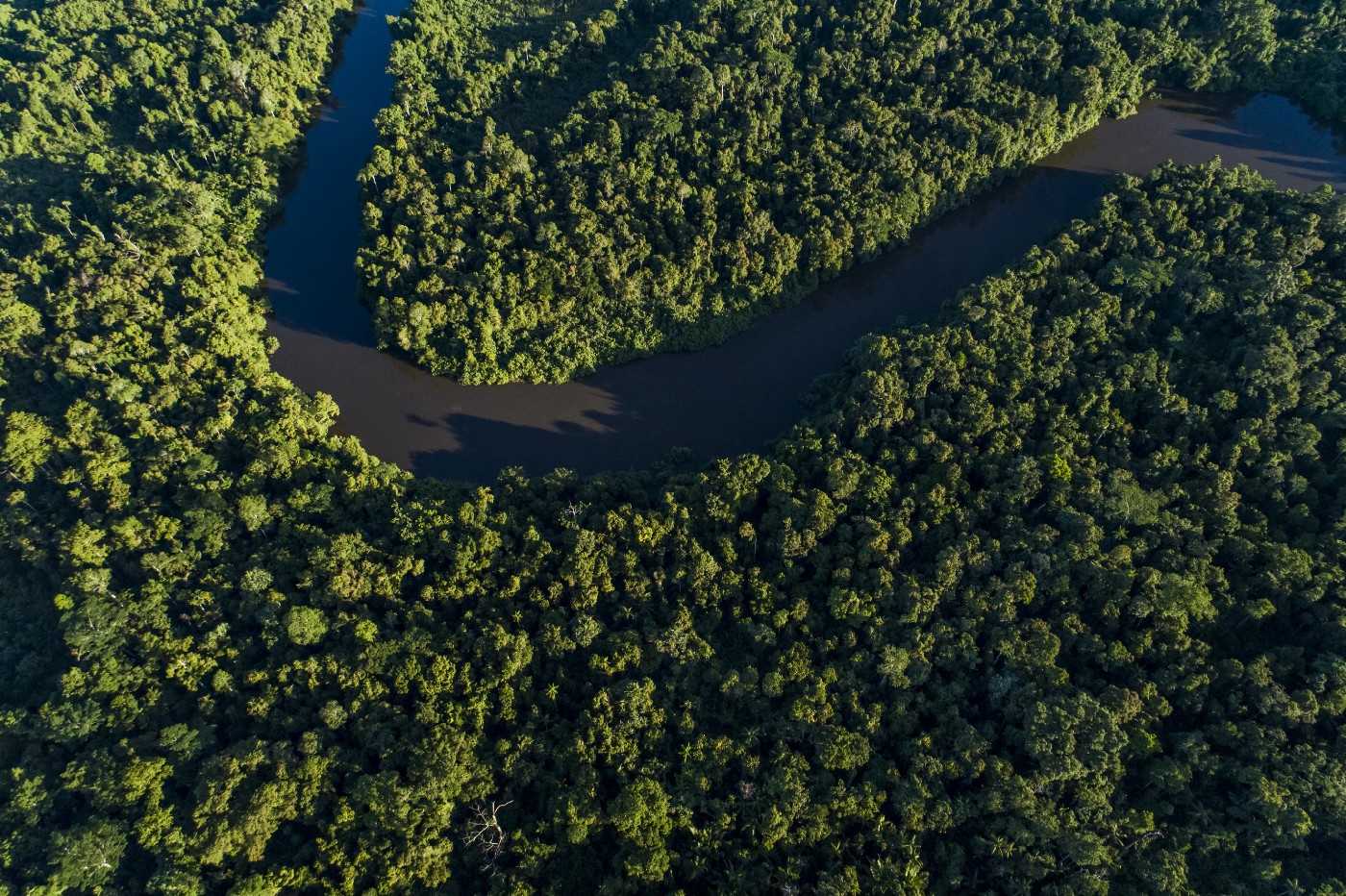- A company that hoped to clear 80,000 hectares of rainforest in Indonesian Papua to plant oil palms has lost a court case over its control of the land.
- Maxim Global was awarded the concession a decade ago, but saw it revoked a few years later by local officials and the land granted to another company, Digoel Agri.
- Digoel Agri has already started deforesting the area, even as Maxim continues to lay claim to the concession.
- That concession and another one initially granted to a Tadmax sister company contain an estimated $1.7 billion worth of timber, according to analysis commissioned by Maxim.
A court in the Indonesian city of Jayapura has ruled against a Malaysian logging and property conglomerate in its bid to retain control of the rights to clear some of the world’s third-largest rainforest for an oil palm plantation.
Despite the decision, handed down April 27, the area claimed by the firm, Maxim Global, remains slated for conversion to oil palms — only by a different conglomerate, Digoel Agri, with which Maxim has been jockeying for control of the planned development for half a decade.
Digoel Agri has already cleared at least 228 hectares of forest, despite objections from members of local indigenous groups who say they never agreed to its presence on their lands.
The area in question forms part of the Tanah Merah project, a vast area on the island of New Guinea that was earmarked a decade ago to become the world’s largest oil palm plantation.
Development of the project is just starting, but if it is carried through to completion, it will result in the clearance of 280,000 hectares of rainforest, releasing a huge volume of greenhouse gases into the atmosphere.
The project was first greenlighted by Yusak Yaluwo, a local politician who was later convicted of corruption in a separate matter. It soon passed into the hands of a mysterious firm known as the Menara Group, which controlled the project through seven subsidiary companies that each held a license to develop approximately 40,000 hectares.

Instead of developing the seven land concessions, Menara quickly sold majority stakes in them to other investors. Maxim bought a 90 percent share in two of them, for $40 million apiece. In the mid-2010s, however, local officials revoked Maxim’s licenses, and issued new ones, covering the exact same area, to Digoel Agri.
The ruling in Jayapura marks the latest blow against Maxim’s efforts to retain control of its concessions, which it has said contain timber worth an estimated $1.6 billion.
Testifying in the case, Jamal Tawurutubun, the head of licensing at the Papua province investment agency, repeated an allegation that the permits acquired by Menara had been falsified, with someone forging the signature of the agency’s former chief. He also said that the indigenous people have the right to consent to the project and that they withdrew it, which is one of the reasons the permits were cancelled, court records show.
Maxim, which until recently was named Tadmax Resources, has also challenged the revocation of its permits through a non-litigation case at the Indonesian ministry of law. The firm did not respond to a request for comment.
Digoel Agri was founded by relatives of an influential Indonesian politician and businessman, Ventje Rumangkang, who died last year. In 2018, a New Zealand property developer, Neville Mahon, became the majority shareholder in the group, and the following year it started clearing forestland.

